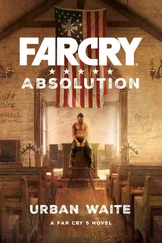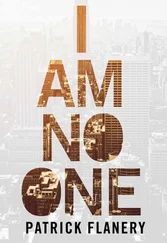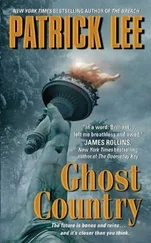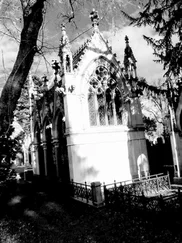We eat in a concentrated silence, punctuated by the sounds of our chewing and breathing, our movements across upholstery, readjusting our weight to find more comfortable positions. A hadeda screams in the garden. One gardener shouts to another. A plane passes overhead. A house further down the street cries out in alarm. We say nothing over the food, and nothing about it.
In all the hours I’ve been in the house I’ve never heard a telephone ring. Maybe there’s a phone in the other wing, with a quiet ringer that only Marie hears and answers. There’s no phone in the office. Clare has no contact with the rest of the world except through the windows, which she opens throughout the day to direct the gardeners in an unbroken stream of language that I know will only ever be sound to me. It’s a language I won’t learn because I don’t have the time or the will.
She chews, her movements slow and methodical, as though every bite demands full attention. Her large, straight teeth work through the bread and fillings, the salad leaf and tomatoes, all simply but carefully prepared. She likes good things, good food, good clothes, good furniture, and a good house. The success of her books has afforded a comfortable lifestyle — an extravagant lifestyle compared to what most have in this country, or in any country for that matter. When we’ve finished the sandwiches, she presses a button on the wall by her desk. A minute later Marie returns with coffee and a plate of Tennis Biscuits and Romany Creams. She takes the empty plates, and again leaves us in privacy.
‘I thought I was supposed to bring my own food.’
‘I don’t like strange smells. Everything becomes more intense when one lives alone. I don’t like going out. I hate travelling. Going to London was almost more than I could manage. I slept for a month afterward.’ She affects a smile. ‘I wasn’t always this way. I haven’t left this house in over three weeks, nearly a month. Twenty-four days: a single day containing many.’
After the initial police investigation into the house invasion, as Clare insisted on calling it, she had no further contact with the authorities. No suspects were presented for her to identify, no one apprehended, and no one, so far as she could remember, had ever asked her for a description of the invaders. The police had failed to recover her father’s wig in its black tin box. And then, a few months after moving from the old house on Canigou Avenue to her new fortress in Bishopscourt, there was a buzz at the outer gate and Marie admitted a black car with government registration plates. The driver, a man with pinched features and a thin neck, opened the door for a petite woman whose hair was swept up behind her head.
The woman did not wait to be offered a seat, but slid down onto the couch opposite Clare’s desk, and opened a binder containing a thick wad of documents.
‘You were previously resident on Canigou Avenue,’ the woman said.
‘Yes, that’s correct.’
‘You suffered a house invasion, I believe.’
‘Come to your point.’
‘You employ a personal assistant, Ms Marie de Wet.’
‘Correct.’
‘ She repelled the intruders,’ the woman said, and sniffed.
‘That is also correct.’
‘With a gun.’
‘Licensed. With a licensed gun. She did all that was necessary — a competency test, background checks, registration. I was unaware of it all. I did not know she had one,’ Clare protested. ‘I have since made her get rid of it. I believe she turned it over to the police, to have it destroyed. There are no guns in this house. I have very strong feelings about guns.’
‘Indeed.’ The woman curled her lip, as if to say, We all have strong feelings about guns .
‘Have you caught any of the intruders?’ Clare asked.
The woman, who Clare thought of as Ms White, looked startled, as if it were a strange question, and jerked her head in silent answer, no .
‘Why would you wish for so long to live in such an insecure house?’ Ms White asked.
‘I don’t think I understand your question.’
‘Why did you choose to live so long on Canigou Avenue when your house was clearly no longer safe? You did not even have a proper gate or razor wire or an electric fence, as you do now. Any so-and-so could have got in. Why did you stay there so long when it was clear the neighbourhood was no longer safe for a woman such as yourself?’
No longer safe because the neighbourhood was too mixed, not white enough any more, too near the crime of the Cape Flats, even if only psychologically so? Clare knew that her intruders had nothing to do with those places, nothing to do with poverty or material deprivation.
‘It was my house. It was where I raised my children, and where I spent the whole of my former married life,’ Clare said. ‘Is this relevant to the case? Could I see your identification?’
The woman produced a badge, but Clare had no means of judging its authenticity.
‘You must have known it wasn’t safe to be there, without even an alarm, without the proper measures taken. You are a celebrity of sorts, madam, aren’t you? You are wealthy. People know you have money, even in this country.’
‘Even in this country, Ms White, where the government does not necessarily like what I have to say.’
‘I did not say that . I meant only that not quite so many people know in this country who you are, but that enough do that you must look after yourself.’
‘It is my country. You need not refer to it as “this country”, as if to suggest I am a visitor,’ Clare said, hoping she sounded authoritative.
‘Are you not a kind of visitor?’ the woman asked.
‘I was born here, as were my parents and grandparents. And while they may not have done so, I have made a point, a very conscious point, of washing myself in every culture of this country, of making myself a part of it entirely.’
‘And yet you remain unchanged by the experience, madam. You are still quite foreign. Like those settler ancestors of yours. They were visitors — or maybe not visitors, something not so nice as just visitors . I can think of another word. Yes, I think with ancestors like that you are still quite foreign.’
‘I am changed in ways you cannot see, Ms White, that are beneath the skin. We could, for instance, speak in your mother tongue if you wished, instead of mine, and then you would have an even greater advantage over me, but I would still be able to hold my own. I am not a stranger anywhere that I go. I can speak with everyone. How can you call me foreign? I have always been a citizen of this country. I have never been anything but a citizen of this country, no matter the history of my ancestors or the history of the country itself. This is my country. I have a birth certificate. I have a passport. I do not appreciate your tone.’
‘And now you live in this grand mansion, with your high walls. It is almost like a palace. Perhaps you think you are some kind of queen.’
‘I think no such thing. I am very humble.’ Perhaps not humble enough. Clare had caught the scent of the hunt, knew that she was not going to be accorded the rights and privileges of an innocent victim; she was a victim, perhaps, but not innocent.
‘You still employ the same personal assistant, Ms Marie de Wet,’ the woman continued.
‘You know I do. She showed you into my house. Forgive me, Ms White, but could you explain the purpose of your questions?’
‘All part of the investigations, to be sure we have missed nothing that might help the case — nothing that might help, as you would say, with apprehending your intruders.’
Читать дальше












